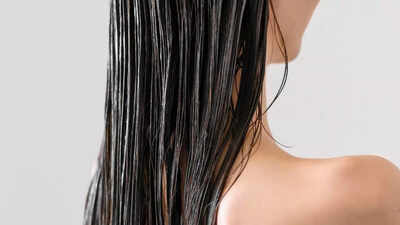ARTICLE AD BOX

You’ve probably done it more than once: come home after a long day, taken a nice shower, and slipped straight into bed with damp hair because who has the energy to blow-dry at midnight? It feels harmless in the moment, but sleeping with wet hair is one of those habits that raises a lot of questions.
Could it actually make you sick? Does it damage your hair or scalp over time? And is there any science behind the age-old advice from our moms and grandmoms: “Don’t sleep with wet hair, you’ll catch a cold!”Interestingly, research shows that what happens when you sleep has more to do with your body’s natural rhythm than old wives’ tales. According to the Sleep Foundation, the condition of your hair and scalp at bedtime can influence not just comfort but also your overall sleep quality.
That means going to bed with damp hair might be more than a cosmetic issue; it could affect both hygiene and health in ways you didn’t expect.
The hidden health risks of sleeping with wet hair
While sleeping with wet hair won’t directly give you a cold (since colds are caused by viruses, not water), it can still make you feel more uncomfortable and even more prone to irritation. Damp pillows and sheets can become breeding grounds for bacteria and fungi, especially if your bedroom is humid.
This raises the risk of scalp infections, dandruff flare-ups, or even worsening of conditions like eczema.On top of that, cold moisture against your skin can lower your comfort level, making your body work harder to regulate temperature during sleep. That means you could toss and turn more, leading to poor sleep quality. Over time, disrupted sleep can weaken your immune system, so while wet hair itself doesn’t cause illness, the ripple effect of less rest and a damp environment definitely can.
How sleeping with wet hair damages your strands

The real trouble with sleeping with wet hair is what it does to your locks. Hair is at its weakest when damp, which makes it more prone to breakage and frizz. As you toss and turn at night, the friction between your wet strands and the pillow can cause split ends, tangles, and even long-term thinning. Cotton pillowcases are the worst culprits here since they soak up moisture and pull on fragile hair cuticles.Another often-overlooked issue? Excess moisture trapped against your scalp can weaken hair follicles over time.
If repeated nightly, this habit could gradually make your hair appear dull, brittle, or more prone to shedding. So, if you’re trying to grow stronger, shinier locks, hitting the pillow with wet hair might be working against all your efforts.
Does sleeping with wet hair affect your sleep quality?
Yes, it can. Sleeping with wet hair may sound harmless, but many people don’t realise how much it disrupts sleep cycles. When your pillow gets damp, it not only feels uncomfortable but can also trap heat and moisture, creating the perfect conditions for tossing, turning, and waking up in the middle of the night.The Sleep Foundation notes that good sleep hygiene includes keeping your sleep environment dry, clean, and comfortable. A wet pillow does the exact opposite, leaving you more restless and less refreshed the next morning. That means the habit can indirectly impact mood, productivity, and even concentration the next dayfar beyond just a bad hair morning.
Safer habits if you must sleep with wet hair
If avoiding bedtime showers isn’t realistic, here are some small adjustments that make a big difference:
- Towel wisely – Use a microfiber towel or an old cotton T-shirt to absorb extra moisture gently.
- Quick-dry with cool air – Give your hair a 10-minute blast with a blow dryer on low or cool before bed.
- Switch pillowcases – Choose silk or satin instead of cotton to reduce friction and avoid moisture build-up.
- Protect with a braid or bun – Loosely tying or braiding your hair helps minimise tangles and breakage.
- Wash earlier when possible – Shower a bit earlier in the evening so your hair has more time to air-dry naturally.
Sleeping with wet hair won’t instantly make you sick, but it does create the perfect storm for bad hair days, restless sleep, and even scalp issues over time.
The occasional late-night shower isn’t the end of the world, but turning it into a daily habit could backfire on both your hair and health.With a few simple tweaks, like towel-drying better, switching pillowcases, or braiding your hair, you can enjoy fresh night showers without the hidden downsides.Disclaimer: This article is for general informational purposes only and is not a substitute for professional medical advice, diagnosis, or treatment. Always seek the guidance of a qualified healthcare provider regarding any medical condition or lifestyle change.Also read| 6 early signs of vitamin C deficiency you shouldn't ignore



.png)
.png)
.png)
















 2 hours ago
2
2 hours ago
2









 English (US) ·
English (US) ·